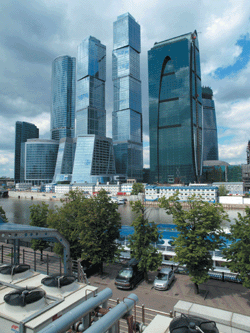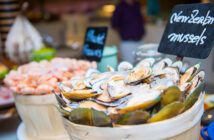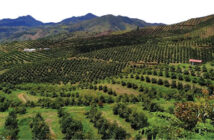By Les Watkins
Hopes are high that New Zealand will soon become the first OECD country to sign a free trade agreement (FTA) with Russia, which now imports more than US$30 billion of food globally each year.
The agreement is expected to be completed in September during the APEC leaders’ meeting in Vladivostok.
Goldman Sachs has forecast Russia will be the largest economy in Europe by 2050.
Its importance to New Zealand’s economy has been stressed by Prime Minister John Key, who describes Russia – with a population of 142 million – as one of the world’s emerging powerhouses along with Brazil, India and China.
“It is the 12th largest economy in the world and the fifth-largest food importer,” he says.
“Russia has a growing number of wealthier middle-class consumers and overall incomes have increased, with consumers becoming more and more willing to pay a premium for top quality.”
The result is a steadily-growing demand for luxury goods, particularly the best food and beverages.
The Ministry of Foreign Affairs and Trade (MFAT) has earmarked this as an excellent opportunity for New Zealand exporters.
NZ exports to Russia climbed from $51 million in 2000 to $187.1 million in 2009 – with the average annual growth rate being 23.1 percent. In 2010 the total was $252 million and last year the country sold $313 million worth of goods to the country.
But MFAT considers that this level, despite being more than double that of five years ago, “is below the potential for a market the size of Russia”.
Butter presently accounts for 70 percent of exports to Russia. Clearly however, there is scope for immense expansion with other products including meat.
Russia currently imports more than two million tonnes of beef, pork and poultry. It is also the 16th-largest global importer of sheep meat.
However at present, despite the growth in trade during the past decade or so, Russia is still only New Zealand’s 35th largest export destination.
If the FTA is signed as anticipated, New Zealand exporters would also be in a far stronger position to trade with two other countries – Belarus and Kazakhstan – which in 2010 established a customs union with Russia.
This ensured a common customs tariff and customs code between these countries.
That means that New Zealand would in effect have an FTA with all three. Here again there is huge potential.
Belarus has a population of 9.5 million and in 2009 our exports there totaled $630,000 – with the main product being fish.
In that year our exports to Kazakhstan, which has a population of 16 million, totalled $930,000 – comprising mainly machinery and butter.





























































































